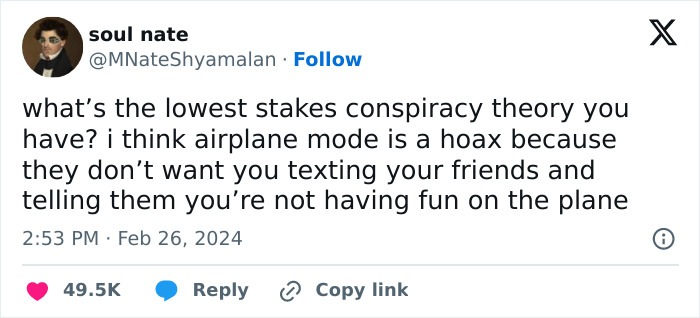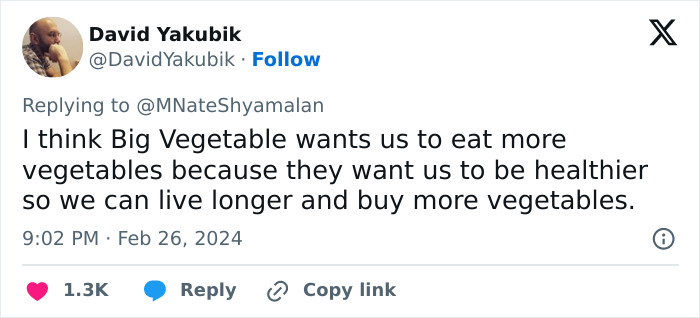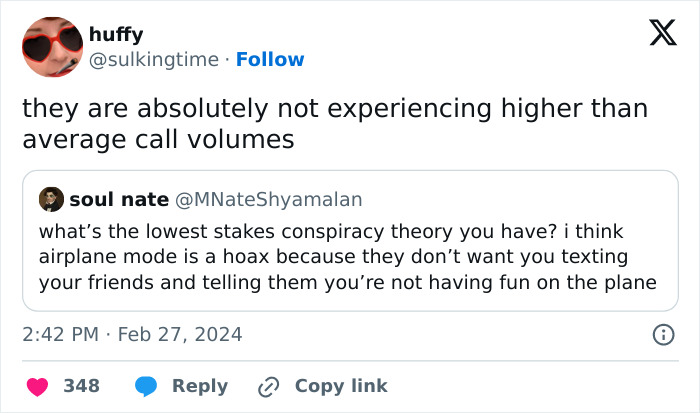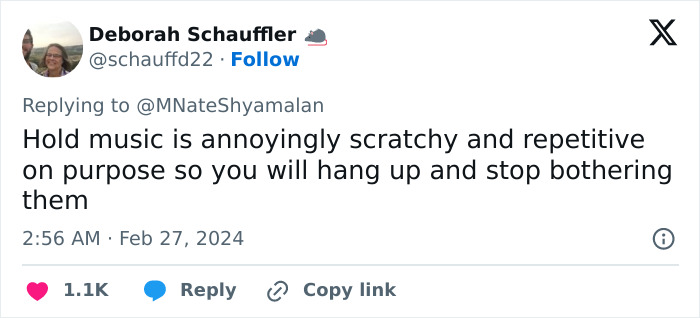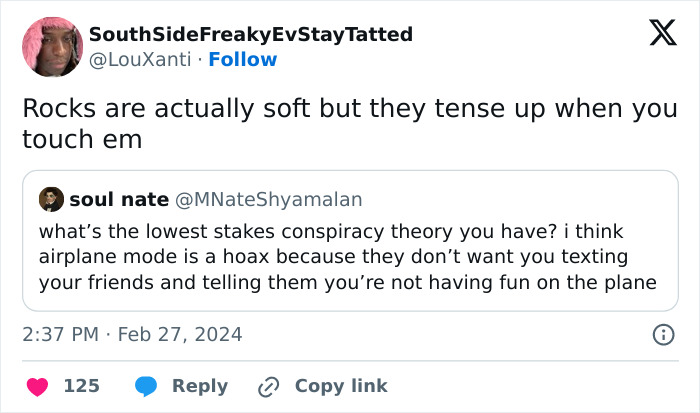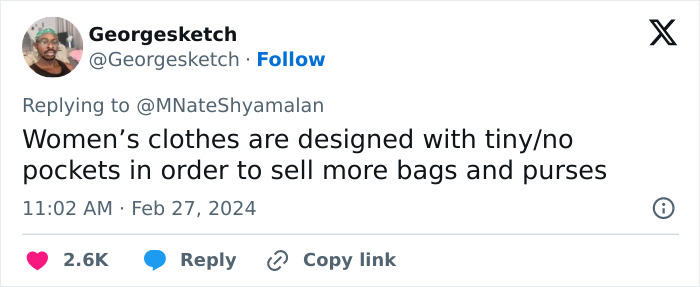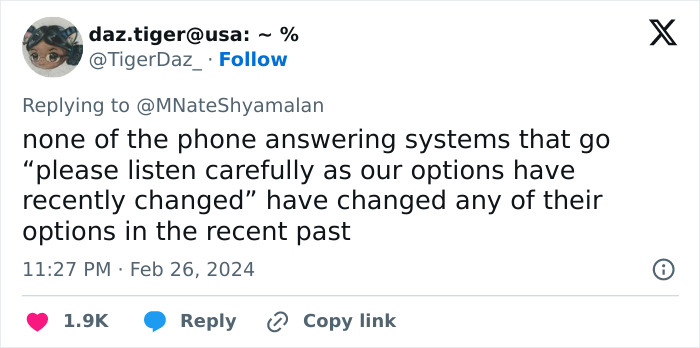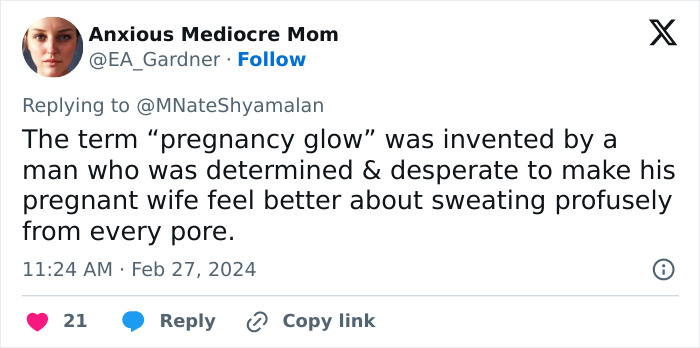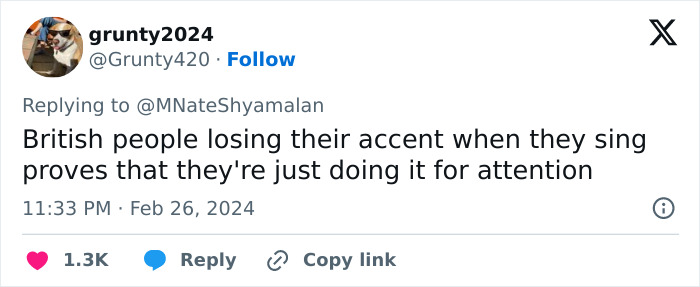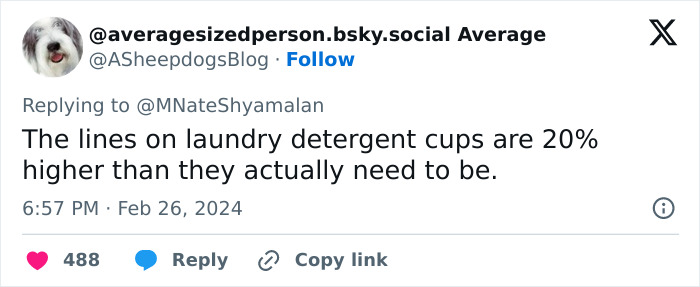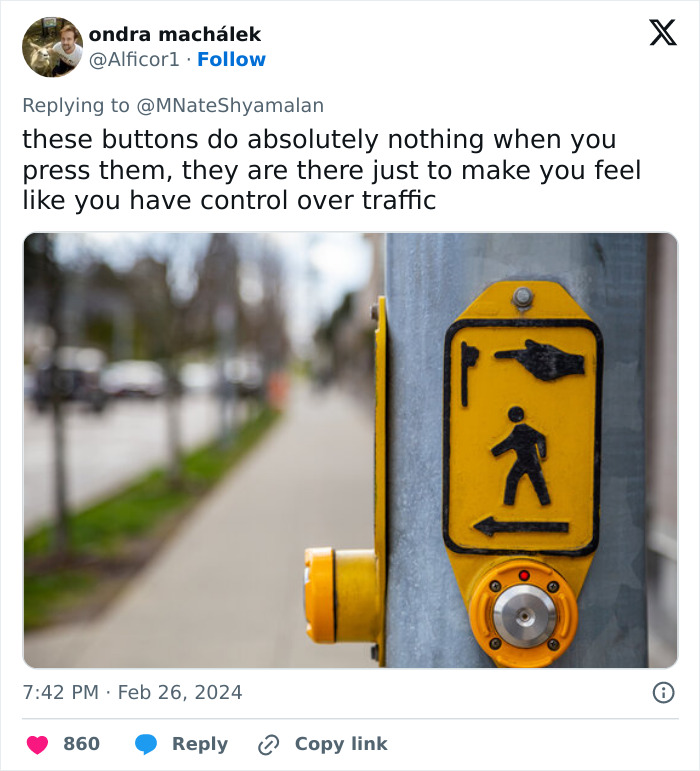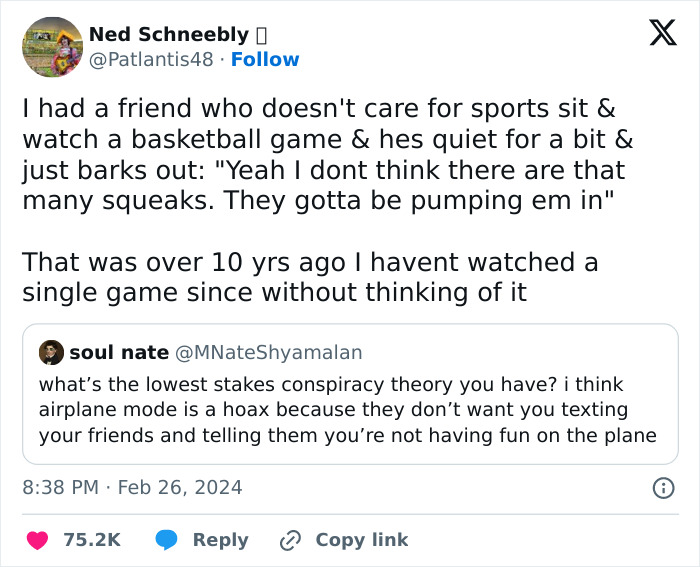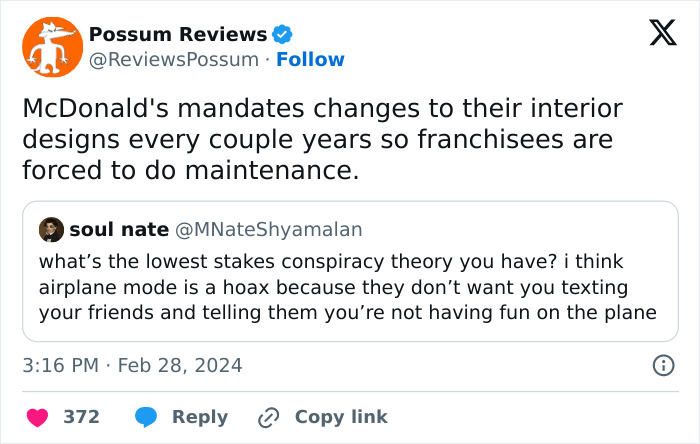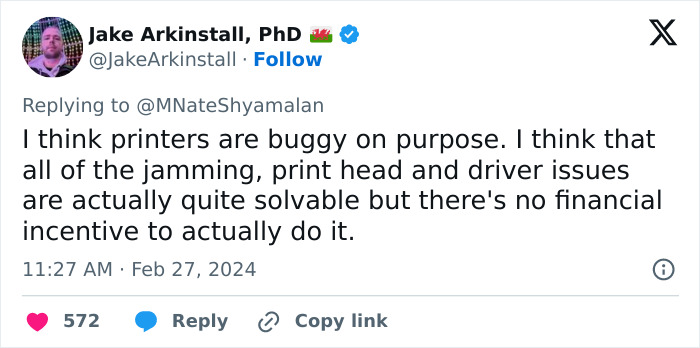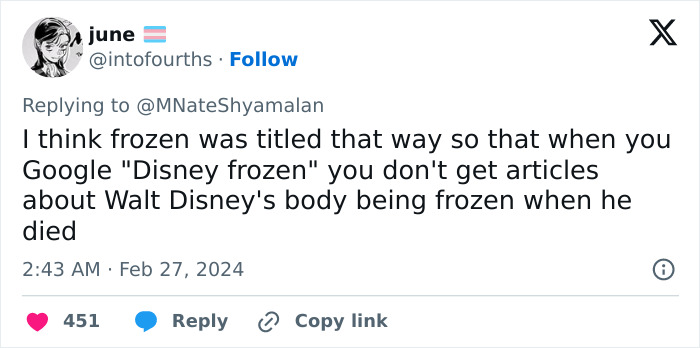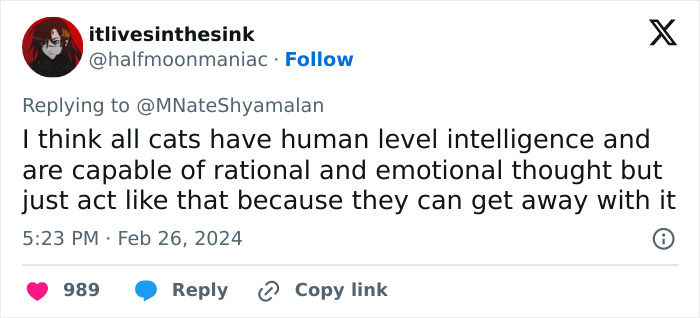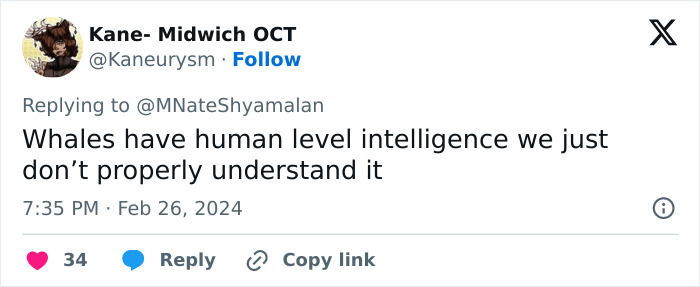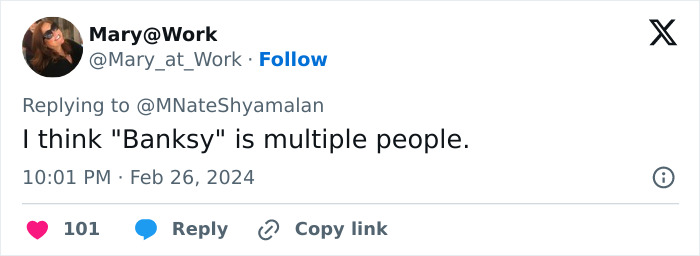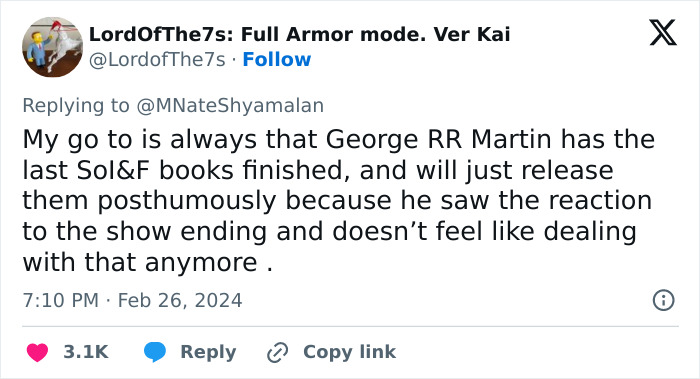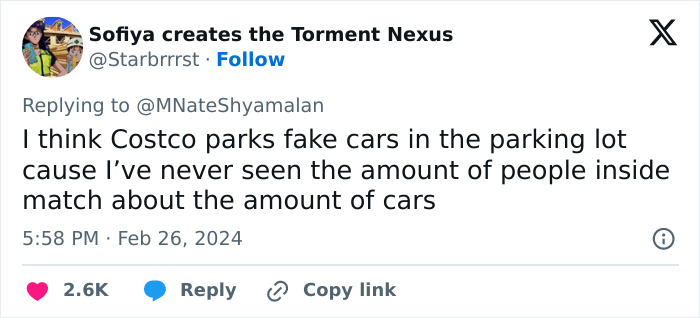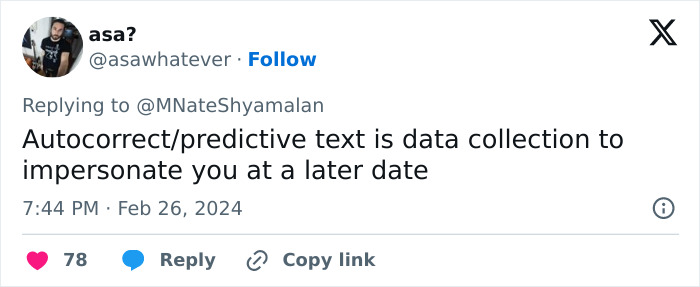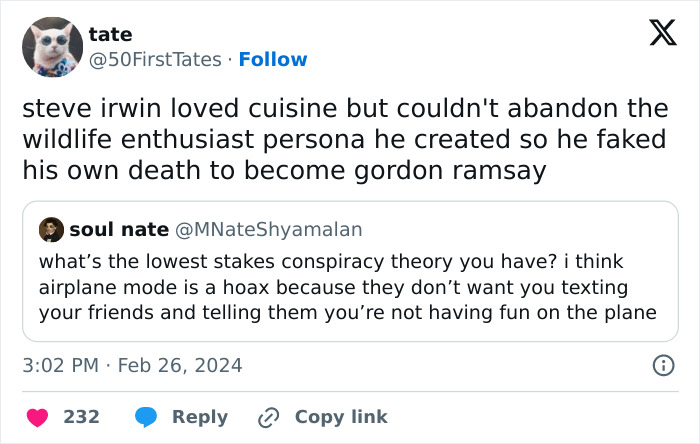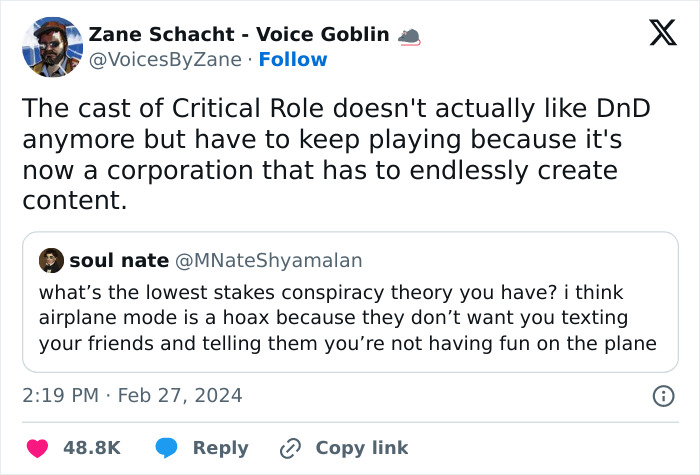Someone decided to focus on these low-stakes conspiracy theories and asked people for examples in a now-viral thread on X (formerly Twitter). Get your tinfoil hat ready as you check out these theories. You’ll probably agree with more anecdotes than you think. More info: X
Image credits: MNateShyamalan A conspiracy theory involves an explanation about a person, thing, or event that is usually centered around a secret plot. Conspiracy theorists genuinely believe that their theory is a secret that’s being hidden from the public, often by some powerful officials. It’s no wonder why people are eager to learn more about these plots and uncover the secrets within. People also tend to distrust authority figures. So, when they are faced with high levels of uncertainty, conspiracy theories tend to spread even more. This suggests that people come up with these vague rumors and plots to make sense of the rapidly changing world around them and to make some threats seem more understandable. According to the University of Nottingham: “People are attracted to conspiracy theories in an attempt to satisfy three psychological needs. They want more certainty, to feel in control, and maintain a positive image of their self and group.” His theory was proved to be correct. This is because when people face uncertain information, they tend to hold more strongly onto their point of view. People also readily accept ideas that fit their viewpoint and tend to strongly question anything that doesn’t fit their point of view. This is what Joseph E. Uscinski had to say in his work on the study of conspiracy theories: “It is difficult to prove that a secret plot is not taking place behind the scenes. A dearth of positive proof and an abundance of falsifying evidence seem to count in their favor. This is not inappropriate: if powerful actors are trying to hide something it only stands to reason that confirming evidence will be hidden and red herrings will abound.” That’s why there have been many studies aiming to see if the number of conspiracy theories was truly increasing every year. One study found that there hasn’t been any significant increase. In fact, researchers have found that people fall for conspiracies online only if they are already likely to believe in them or if they are interested in that particular topic. Follow Bored Panda on Google News! Follow us on Flipboard.com/@boredpanda! Please use high-res photos without watermarks Ooops! Your image is too large, maximum file size is 8 MB.
